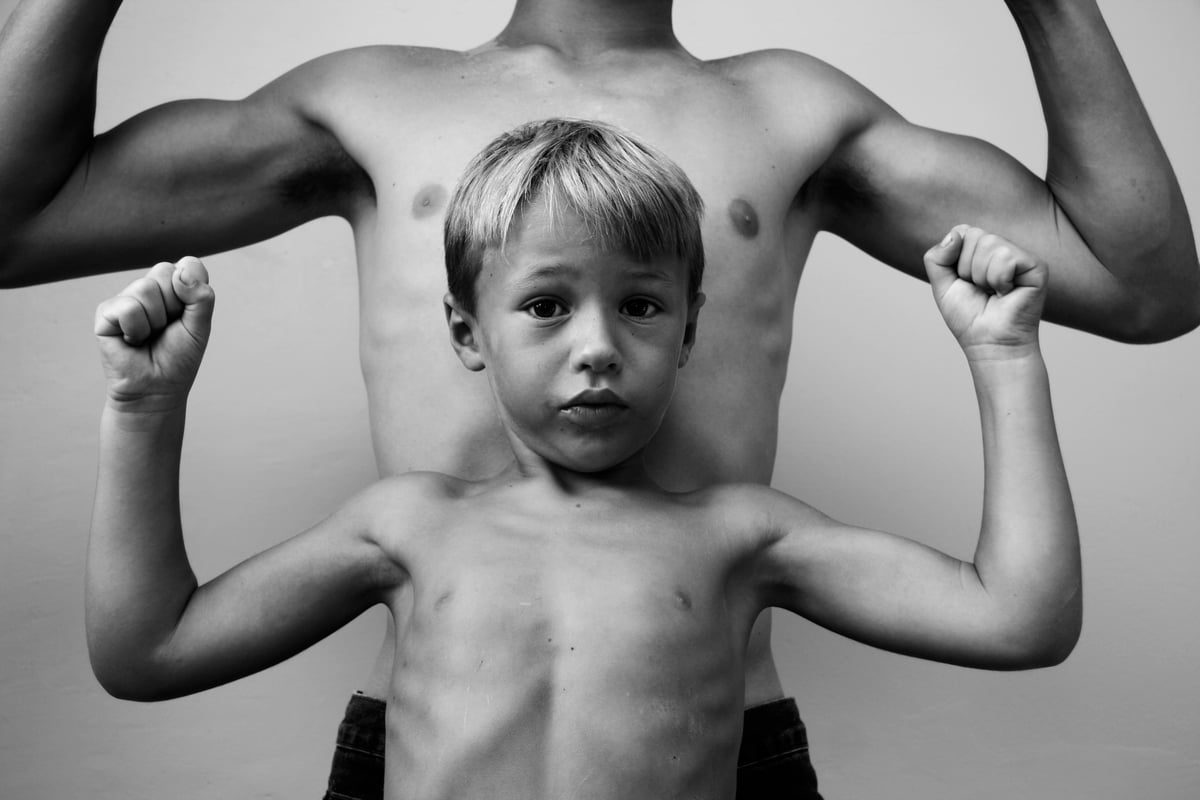
My 12-year-old son has always been a sporty kid, but I've noticed recently that there's been a shift in how he approaches his activities. While he plays sports mostly because he enjoys it, his motivations now include wanting to be healthy and look strong.
As parents, we have always tried to encourage a healthy lifestyle by being active ourselves. We do family bush walks, beach swims or bike rides and he and my husband play tennis.
While we are far from perfect role models, our goal was always to encourage some healthy fun, not to make our kids worry about having defined abs or broad shoulders, which I am worried is where we are heading with our eldest.
Mum of two Tess* says that she too has noticed a change in her tween boy's attitude to sport and his appearance.
"My 13-year-old has just started to show an interest in building muscle but I'm not sure where it's come from," Tess tells Mamamia.
"He has a thin build and has started covering up around me at the pool. While he is not obsessed with how he looks, he wants to look good or 'cool' around his peers. He loves boxing and martial arts and talks about John Cena and tells me he's the strongest man in the world. I'm not sure how concerned to be or if this is just a normal phase?"
A recent small study of 149 boys, aged 11 to 18, published in the Californian Journal of Health Promotion on body dissatisfaction and muscle dysmorphia, found that 24.1 per cent of the boys in the 'healthy BMI' category were unhappy with their body shape.
